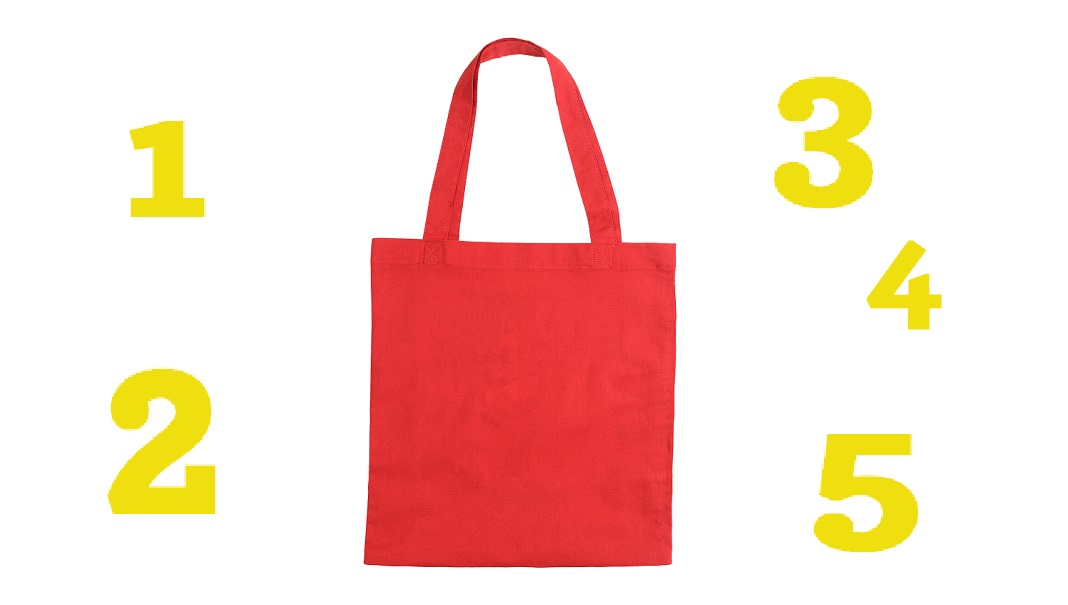Top 5 Jewish Gifts

'T
is the season. Coordinating Chanukah parties, 11-year-olds discovering that they’ve outgrown being excited about playing dreidel, and yes, of course, Chanukah presents. In general, Chanukah presents can cause divisiveness in our community. There’s a whole camp who refuses to do it at all (“It’s not a Yiddishe minhag!”), but even among those who do celebrate that way, there’s a deep division: A present every night or one big present that lasts all eight nights? The main struggle for me growing up was exhibiting some measure of discipline when family came to visit before asking, “What did you get me?” I was a present fiend, accosting grandparents, scaling the upper shelves of closets, and peering at ambiguous lumps in the car trunk. I have since matured, but my fascination with gifts in the Jewish community still lingers.
The Shadchan Gift
“Yosef and I are so appreciative of all of the work and effort you put in on our behalf to make this such a special simchah.”
As Chavi and Yosef hand over the box to the shadchan, she’s already nervous. Box is way too thin and light to be something serious. Who gives money in box? It’s also too narrow and wide to be jewelry. So many possibilities are running through the shadchan’s head, she didn’t realize the couple are waiting for her to respond to their last question.
Quickly snapping out of her reverie, she responds, “Oh, what number shidduch is this? Baruch Hashem well past 20.”
Maybe it’s a really big fancy gift certificate? But the dread has already set in. She knows what’s in the box. It’s either a picture of the couple in a fancy frame or a challah cover. Slowly she opens the box, moving past that crinkly paper that feels like a stale fancy tissue.
It’s worse than she thought. She unfurls a challah cover with the faces of the couple embroidered on top.
But, we know what shadchanim want. Money. For every late-night phone call, for every time they talked one side out of ending it because the guy was too out-of-the-box, for every call they had 15 minutes later convincing the other side that the girl is not too in-the-box — they earned it and deserve it. Just don’t ask me how much.
How much to give a shadchan is like finding out how much to tip the garbage men during holiday season — everyone knows you have to, but no one knows how much. This much I do know, though: The accepted price increases in relation to your hashkafah. A thousand dollars from each side might work in Teaneck, but in Lakewood you can be looking at several times that. So what you save on tuition in the yeshivishe velt, you end up losing in shadchanus. Honestly, when people start dating, they should focus less on the hashkafah of the girl and consider more carefully the hashkafos of the shadchan — it can cost you!
The Chavrusa Gift
There’s an awkward moment that many a yeshivah bochur has experienced. You borrow someone’s Ketzos, and lo and behold, the inside cover is scribbled with what at first glance seems like an overly emotional tribute letter. No, this page-and-a-half-long scrawl is not from a kallah, it’s from a doting chavrusa.
I’m not sure when the custom began, but in many yeshivos at the end of a zeman, chavrusas exchange gifts. This has become an outright epidemic in Modern Orthodox Israeli yeshivos. I remember at the end of the year at Shaalvim, chavrusas in the American program would lug in full sets of Tosafos Rosh and drop it on the table. Chavrusas had to act surprised and excited as if they didn’t realize what was going to happen when their mutual friend asked during lunch the previous week, “What seforim are you still missing and also — sidenote — how much do you plan on spending on your gift to Shlomo?”
I had two rules in yeshivah about chavrusa gifts:
1) Only single-volume seforim. I don’t need a random volume of Rashba, and a full set of Ritva is going to feel awkward when you see what I got you (spoiler: I got all my chavrusas copies of Tzidkas HaTzaddik).
2) If you’re going to write me a note inside the sefer, please do it on the back cover — I don’t need my children reading the love letter or laughing at your first-year-in-Israel Hebrew.
So whatever you end up getting your chavrusa — nothing, a full set of Tur, Touched by a Story chelek gimmel — there is just one major no-no: Don’t buy a blank “Chiddushei Torah.” Maybe you can convince me that they make cute bar mitzvah gifts, but if you’re still using them in yeshivah, there’s a good chance they’re going to remain blank.
The Teacher/Rebbi Gift
Before Chanukah every year my mother would send me to yeshivah with an envelope. I knew what was in the envelope — my mother told me. It was actually quite sweet. I grew up in the Five Towns, but as a young child I always was nervous that we had no money. We were always fine, but stir enough anxiety into a young child’s mind, and he’ll come up with all sorts of concerns. My mother would always reassure me, “We pay full tuition, we’re fine!”
As an eight-year-old, I didn’t really understand the accomplishment of paying tuition — it sounded like someone bragging that they had never been to jail. Was the alternative to paying tuition shoplifting school? I didn’t really get it. But one year my mother pulled me aside and explained that no matter our financial situation — short of anything dire — it was so important to them to show appreciation to my rebbeim and teachers. She always gave me that envelope and made sure I knew that showing appreciation was a privilege.
Not everyone may be in a position to give money, but here’s one thing that rebbeim, teachers, and morahs don’t want instead: your book. And let me be absolutely clear — as a new author, I need to remind myself of this every day. It’s not easy. And it doesn’t matter if it’s in Hebrew or English — they don’t want it unless an envelope is tucked away inside the cover. My book has become the Swiss Army knife for all displays of appreciation. I gave my wife a copy for our anniversary. She threw it out. Now I know what to get her for Chanukah.
The Gift from Eretz Yisrael
As you say goodbye, about to leave to the airport, the dreaded request is made: “Bring me back something from Eretz Yisrael.” This usually ruins the duration of my trip — because I never know what to get. I’ve made this mistake enough times that I have mastered the last-minute gift-buying from the terminal in Ben-Gurion.
Here are your basic options. Your first line of defense is the Hazorfim at the airport. At this point, I just walk in and say a price range, and then figure out what I bought when I finally deliver the gift. What did you bring back? Hmm…. I want to say, “a silver [pauses and examines the oak and silver] bentsher holder?” Might also be for besamim. Embrace the mystery.
If Hazorfim is out of your price range or wrong for your demographic, my second line of defense is one of those overpriced costume jewelry stores. I have some PTSD from unsupervised jewelry shopping for my wife, and I always forget if that piece is still in or “that’s from, like, a hundred years ago.” So, I usually decide against walking in.
Your third line of defense — and once you’re here you’ve already lost — is the gift shop. If the people in your life still get excited by seeing brand names in Hebrew letters, you need to reassess whom you surround yourself with. Part of becoming an adult is not getting giddy when you see “Coca-Cola” written in Hebrew.
If nothing works there — a candy bar with Hebrew letters? — there is only one place left. And it’s calling you with its big red shiny letters: Duty Free. And after frantically searching for an hour, almost missing your flight, frankly you need it. When your kids ask what you brought from Eretz Yisrael, just explain you accidentally drank it on the way home.
The Chasunah Gift
You got the shadchan a gift. You booked the hall. Secured the caterer. Think you’re done? Guess what — you’re not. Not even close. We learn the laws of marriage from Avraham’s purchase of the Mearas Hamachpeilah, because in our community you’re not really married until you’re dead broke.
The add-on slowly trickles in. “You know, Tatty, Yossi doesn’t have a menorah.” There’s an implicit expectation to buy all sorts of Yom Tov goodies — menorahs, Megillos, esrog boxes. Here’s the secret. You need to schedule the entire engagement/wedding period during the quiet season over the summer, when there are no Yamim Tovim. Skip the menorah. No need for the Megillah. Just send a pair of Crocs and wish a meaningful fast.
The worst new emerging trend is the current fad of buying gifts for all the siblings. “Oh, cute, we’re all gonna wear brother/sister-of-the-kallah hoodies! Can we just decide now among ourselves how long we have to wear these when you’re around? Does two months sound reasonable?”
I was in my late twenties when I got married, and around five years into dating, I started to feel the absence on my wrist. There is something eerie in a yeshivah when you’re surrounded by kids in their early twenties all walking around with thousand-dollar watches. I don’t know how chassan watches got started, but at that point in my life I knew two things: I loved fancy watches and I didn’t have one.
So when I was about 27, I created a new custom. I bought myself a nice watch. It was my not-a-chassan watch. If a newly minted chassan got a watch in addition to the adulation, dorm posters, and dining room dancing, surely a custom needed to be created to invest those not-yet-married with dignity. So began my time-honored custom of awarding those weary from dating a not-a-chassan watch. Sometimes the most important gift is the one you buy for yourself.
(Originally featured in Mishpacha Issue 791)
Oops! We could not locate your form.







